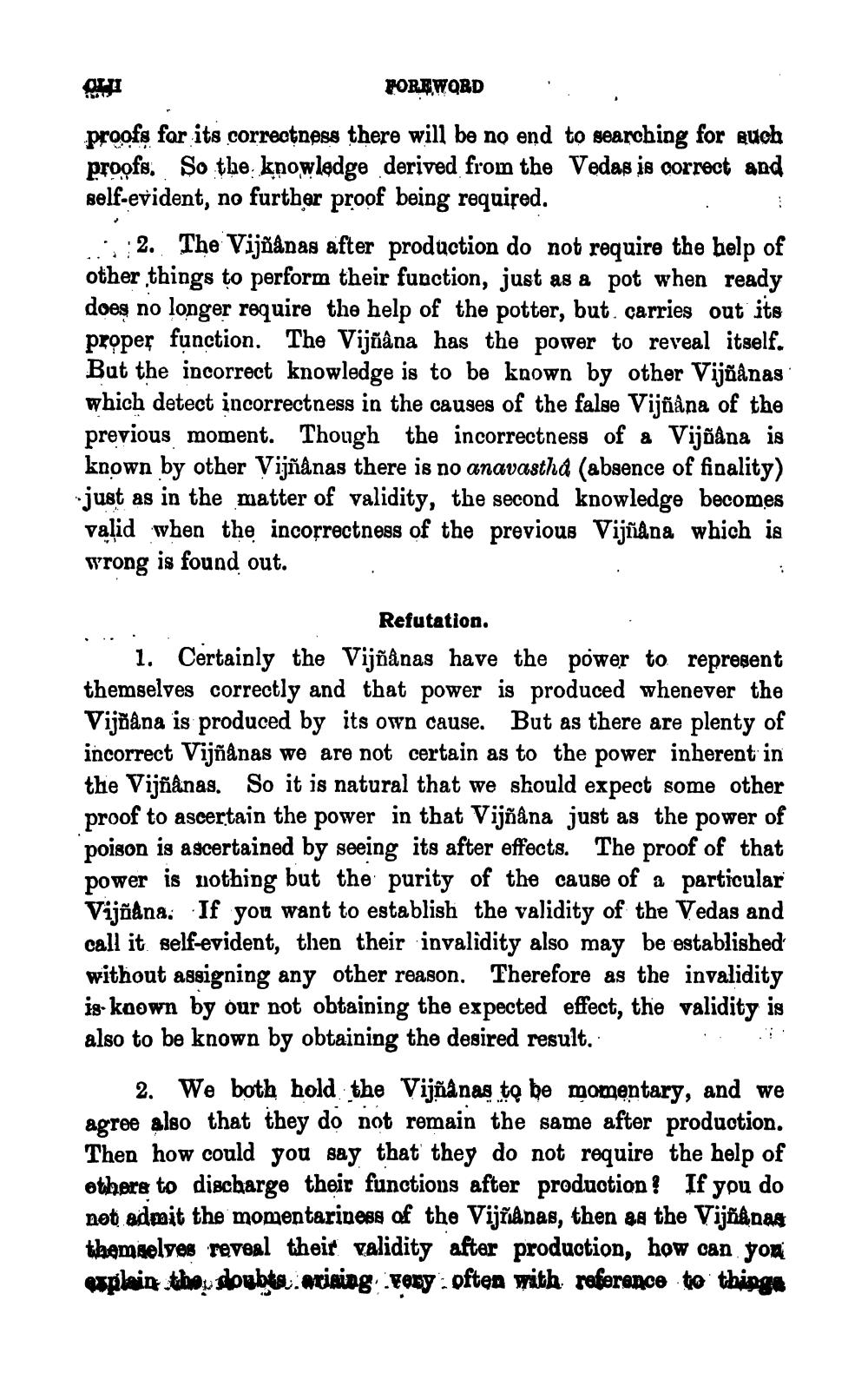________________
FOREWORD
proofs for its correctness there will be no end to searching for euch proofs. So the knowledge derived from the Vedas is correct and self-evident, no further proof being required.
::2. The Vijñanas after production do not require the belp of other things to perform their function, just as a pot when ready does no longer require the help of the potter, but carries out its proper function. The Vijñâna has the power to reveal itself. But the incorrect knowledge is to be known by other Vijñanas which detect incorrectness in the causes of the false Vijñåna of the previous moment. Though the incorrectness of a Vijăåna is known by other Vijñanas there is no anavastha (absence of finality) just as in the matter of validity, the second knowledge becomes valid when the incorrectness of the previous Vijnana which is wrong is found out.
Refutation. 1. Certainly the Vijñanas have the power to represent themselves correctly and that power is produced whenever the Vijñána is produced by its own cause. But as there are plenty of incorrect Vijñanas we are not certain as to the power inherent in the Vijñånas. So it is natural that we should expect some other proof to ascertain the power in that Vijñana just as the power of poison is ascertained by seeing its after effects. The proof of that power is nothing but the purity of the cause of a particular Vijñana. If you want to establish the validity of the Vedas and call it self-evident, then their invalidity also may be established without assigning any other reason. Therefore as the invalidity is known by our not obtaining the expected effect, the validity is also to be known by obtaining the desired result.
2. We both hold the Vijñānas to be momentary, and we agree also that they do not remain the same after production. Then how could you say that they do not require the help of others to discharge their functions after production! If you do not admit the momentariness of the Vijfánas, then as the Vijñanag themselves reveal their validity after production, how can you explain thou sloubts arising Fody often with reference to things




